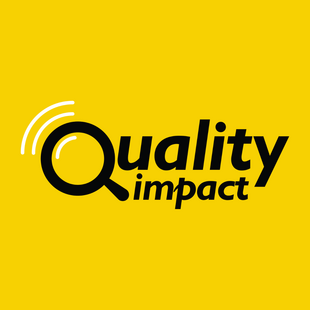
IWA 48: A new benchmark in ESG implementation
Progress indicator

Management consultant Oluwafemi Adare CQP MCQI, a member of the Sustainability special interest group, explains the significance of the recently published IWA 48 for quality professionals.
The global landscape of business has been rapidly evolving, with organisations recognising the need to balance profitability with social responsibility and environmental sustainability. The integration of environmental, social, and governance (ESG) criteria into business strategies is no longer a trend but a necessity.
However, with this growing emphasis on ESG, there has been a clear demand for standardised guidelines that help organisations implement ESG principles effectively.
Enter IWA 48, a significant milestone in the realm of ESG, designed to provide organisations with a structured approach to implementing sustainable and responsible ESG principles.
Understanding IWA 48
IWA 48 stands for International Workshop Agreement 48, a newly developed framework that is available free of charge. It aims to guide organisations of any size and type to implement and report on their ESG activities, products, services and commitment to support the achievement of sustainable development, social justice and good governance.
The International Organization for Standardization (ISO) created IWA 48, which was released on November 14 2024 and officially introduced at COP 29 in Baku, Azerbaijan, on the same day.
IWA 48 is a consensus-based document that lists the best ways to incorporate ESG factors into business strategies, as well as methods and key performance indicators.
The overarching principles of ESG
The overarching principles of ESG serve as a foundation for how organisations should approach, implement, report and assess their ESG initiatives. Let's break down each principle into simpler terms:
a) Integrity
This principle is all about being ethical and transparent in everything related to ESG. It means:
- making decisions with integrity requires acting with honesty and ethics.
- independence and objectivity: making unbiased and fair decisions without conflicts of interest.
- openness and transparency: being clear and open about your ESG activities and reporting.
- accountability: having strong leadership and systems in place to take responsibility for actions, including listening to feedback from stakeholders/interested parties.
b) Outcomes-focused
The focus here is on understanding the impact of your decisions, both positive and negative. It involves:
- assessing direct and indirect outcomes: considering the strategic and operational effects of your actions on the environment and society.
- considering intended and unintended consequences that involves not only focusing on planned outcomes, but also being aware of any unexpected impacts on your organisation and beyond.
c) Equity
This principle emphasises fairness and balance in how you consider the interests of different stakeholders. It means:
- being objective, fair, and impartial: making decisions that take into account the interests of all stakeholders, such as employees, customers, communities and even future generations.
- balancing short- and long-term priorities: it involves managing immediate needs while also considering long-term sustainability and the availability of resources.
- addressing material concerns, which involves focusing on what is truly important and relevant to your stakeholders.
d) Risks and opportunities
This principle is about integrating risk management into ESG strategies. It includes:
- identifying risks and opportunities: comprehending the obstacles and possible advantages of your ESG endeavours is crucial.
- considering impacts across the value chain: Examining the effects of your actions on not only your company but also suppliers, partners, and the wider community is crucial.
- proactive management involves using this understanding to inform your strategy and operations.
e) Evidence-based
Reliable data and analysis should serve as the foundation for decisions. This principle emphasises:
- the use of scientific and analytical methods: ESG decisions are guided by facts and evidence.
- prioritising material risks and opportunities: focusing on the most significant issues, based on verifiable data.
- ensuring accuracy and reliability: making sure your ESG reporting is credible and trustworthy.
f) Maturity
The goal here is to continuously evolve your ESG practices. It involves:
- embedding ESG into your organisation's core values, integrating it into the company's culture, rather than treating it as a one-time checklist.
- continual improvement: you should consistently update and refine your ESG strategies, drawing from fresh insights and industry best practices.
- ownership and integration: ensuring that everyone in the organisation, from leadership to employees, understands and embraces ESG as a crucial component of the business is crucial.
The relevance of IWA 48 for quality management professionals
Professionals in quality management hold a unique position to spearhead the implementation of IWA 48 in their respective organisations. The alignment between quality management principles and ESG principles creates a natural synergy that can enhance business performance and sustainability.
Here is how IWA 48 holds particular relevance for quality management professionals.
1) Enhanced risk management
Quality management has traditionally prioritised the identification, assessment, and mitigation of risks. IWA 48 extends this focus to include ESG risks and opportunities, such as environmental impact, social licence to operate, and governance issues. Quality management professionals can leverage their expertise in risk assessment to help organisations navigate the complexities of ESG risks and opportunities, thereby ensuring business continuity and resilience.
2) Strengthening compliance and accountability
Quality management professionals are well versed in ensuring compliance with industry standards and regulatory requirements. IWA 48 provides a framework that will help organisations comply with emerging ESG regulations, such as the EU’s Corporate Sustainability Reporting Directive (CSRD) and other national sustainability reporting mandates. Quality managers should lead efforts to align with these new requirements, thereby reducing the risk of noncompliance and reputational damage.
3) Driving continual improvement
At its core, quality management is about continual improvement. IWA 48 emphasises the importance of setting measurable ESG targets, monitoring progress, and making data-driven improvements. Quality management professionals should apply their expertise in the Plan, Do, Check, Act cycle.
4) Fostering a culture of sustainability
People and culture are part of quality management, too. IWA 48 highlights the importance of engaging interested parties and stakeholders in the ESG journey. Quality management professionals should play a key role in fostering a culture of sustainability by educating employees, engaging suppliers and communicating the value of ESG to customers and investors.
5) Enhancing reporting and transparency
One of the major challenges organisations face is accurately measuring and reporting their ESG performance. Quality management professionals, with their experience in data management, auditing and reporting, should support the implementation of robust ESG reporting practices. This includes aligning with global reporting frameworks like the Global Reporting Initiative (GRI) and the Task Force on Climate-related Financial Disclosures (TCFD).
The design of IWA 48 complements existing ISO management system standards, fostering a comprehensive approach to ESG implementation. For organisations already certified in standards such as ISO 9001, ISO 14001, or ISO 45001, IWA 48 offers an opportunity to enhance their management systems by integrating ESG considerations.
This integrated approach not only streamlines ESG implementation but also enhances the overall effectiveness of management systems, leading to improved operational performance and stakeholder trust.
Conclusion
IWA 48 marks a significant advancement in the world of ESG, offering organisations a clear and practical guide for implementing sustainable and responsible practices. For quality management professionals, this presents a unique opportunity to leverage their skills and expertise to drive ESG integration, enhance risk management and contribute to the long-term success of their organisations.
As the global business landscape continues to prioritise sustainability, adopting frameworks such as IWA 48 will be crucial for organisations seeking to remain competitive, compliant and socially responsible.
Quality management professionals, with their focus on continual improvement and operational excellence, are well-positioned to lead this ESG transformation, making IWA 48 not just a benchmark for sustainability but a pathway to a better future.
Oluwafemi Adare represented Wunderkind Consulting Nigeria Limited on the ISO/WS ESG/WG 1 committee that developed the IWA 48.
Want to get involved?
Why not join the CQI's Sustainability special interest group to discuss this topic, and more, with like-minded quality professionals.
Quality World

Get the latest news, interviews and features on quality in our industry leading magazine.
The latest from the CQI Podcast

Listen to the Quality Impact podcast, where experts share insights on the evolving role of quality across industries.



